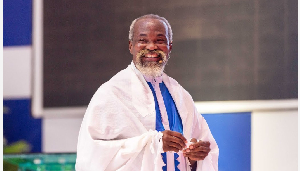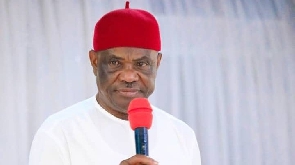With almost 200 million people between the ages of 15 and 24, the African continent boasts the youngest population in the world. By 2045, that figure is expected to double.
The African Development Bank is working on providing youth with the skills, education and jobs they need to secure their future.
Available data shows that although between 10 and 12 million young Africans enter the work force each year, only three million formal jobs are created annually.
Besides, the youth often lack the skills required by employers, despite gains in education access over the past several decades.
"We need a sense of urgency in tackling the issue of unemployment, said Akinwumi Adesina, President, African Development Bank, during a Fireside Chat on Youth in Africa co-hosted by Ashish J. Thakkar, a young African entrepreneur, the founder of Mara Group and Mara Foundation, on Thursday, May 26, at the 2016 Annual Meetings of the African Development Bank.
Adesina underscored the need to invest in skills development to facilitate job creation. He pointed out that the Bank has taken bold steps to turn Africa's phenomenal youth bulge into an economic dividend by developing a strategy that would create 25 million jobs for youth on the continent as well as equip an additional 50 million in the next decade.
The programs initially focus on the Bank's high-priority sectors of agriculture, industry, and ICT, will include an index to measure youth employment outcomes and enabling policies at the country level, and provide information on the evolution of labour market performance over time.
It can also be used as a tool to incentivize policy-makers to pursue agendas favourable to youth employment.
"The skill sets and jobs of the future are digital. The world is changing fast," Adesina said, calling for skills development in information technology and agriculture.
“Africa's billionaires won't be in oil and gas, but rather in agriculture,” Adesina said, calling for more investments in agriculture.
Africa's millionaires as well as billionaires, he argued, are doing the right thing by investing in African entrepreneurs, Adesina said, as the continent still needs to create a critical mass of African entrepreneurs to drive investment and create jobs.
He further pointed out that African countries need to urgently create opportunities for young people to minimize risks associated with unemployment.
“Fragility in African states is directly linked to unemployment; inclusive growth is urgent,” Adesina said.
There is growing concern that unemployed young people become easy targets for terrorist groups or human traffickers promising them imaginary El Dorados, only for them to perish in the Mediterranean.
For his part, Ashish J. Thakkar, who started with a small computer trading operation, but grew the business over the years into a pan-African conglomerate, called for a mindset shift, and specifically the need to shift the narrative from bringing the Silicon Valley to Africa to taking Africa to the Silicon Valley.
The entrepreneur, who has assets valued over US $100 million in real estate and tourism to financial services, information and communications technology, renewable energy and manufacturing, emphasized the need to improve the business environment to facilitate young entrepreneurs.
He specifically urged banks to increase lending to small and medium businesses.
Business News of Sunday, 29 May 2016
Source: AFDB













